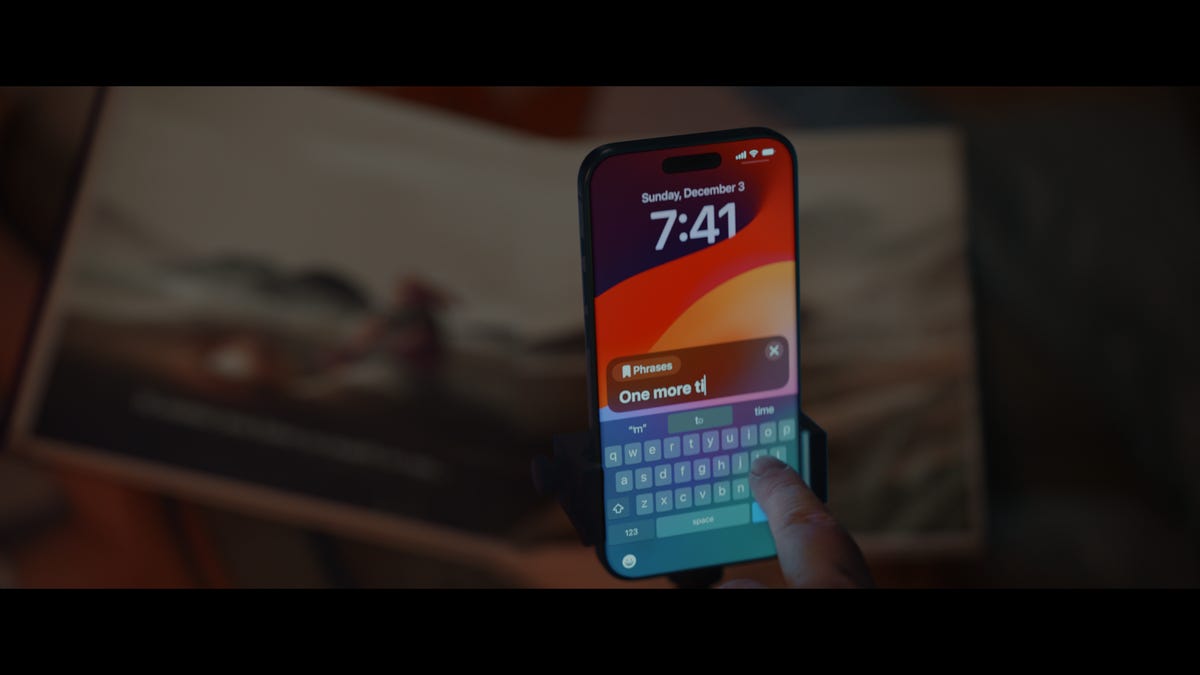Taika Waititi's New Apple Film Shows Off the iPhone's Speech Accessibility Tools
The short film demonstrates Personal Voice and Live Speech in iOS 17.

iOS 17 incorporates a series of new accessibility features, like Personal Voice and Live Speech.
Apple on Thursday released a short film promoting two of its iOS 17 features geared toward speech accessibility, Personal Voice and Live Speech.
Personal Voice lets users who are at risk of speech loss create a voice that sounds like them, and Live Speech will speak aloud typed-out phrases. The features can be useful for people who are nonspeaking, have diverse speech patterns or disabilities, or who are at risk of losing their ability to speak, such as those with conditions like muscular dystrophy or ALS.
In the short film, a young girl and her furry friend embark on a mission to find his missing voice. The ending centers on a touching moment between a father and daughter who utilize Apple's speech accessibility features to communicate with each other. You can watch it on Apple's YouTube channel or website.
The film is directed by Taika Waititi and stars Dr. Tristram Ingham as the father. Ingham is a real-life user of Personal Voice and a physician, associate professor and disability advocate from New Zealand. He has facioscapulohumeral muscular dystrophy (FSHD), which causes progressive muscle degeneration and can ultimately lead to speech loss.
Personal Voice lets him preserve the sound of his real voice. The feature uses on-device machine learning and is trained by having someone speak a series of text prompts aloud on an iPhone or iPad. (I've tried it, and the voice resemblance is uncanny and impressive.)
The other highlighted accessibility feature, Live Speech, is available on iPhone, iPad and Mac. It can be used for in-person conversations as well as over the phone and on FaceTime. For example, you could have it say, "Nice to meet you, I'm ..." and introduce yourself, or save common phrases like "Can I please get a black coffee?"
The short film debuts ahead of International Day of Persons with Disabilities on Dec. 3, and reflects the growing efforts of tech companies like Apple, Google and Meta to make their platforms, products and services accessible to more people. Other features Apple debuted this year include Point and Speak, which lets users with vision disabilities point to objects with text labels and have their device read that text aloud, and Assistive Access, which is designed for people with cognitive disabilities and offers a more focused device interface to lighten cognitive load.

